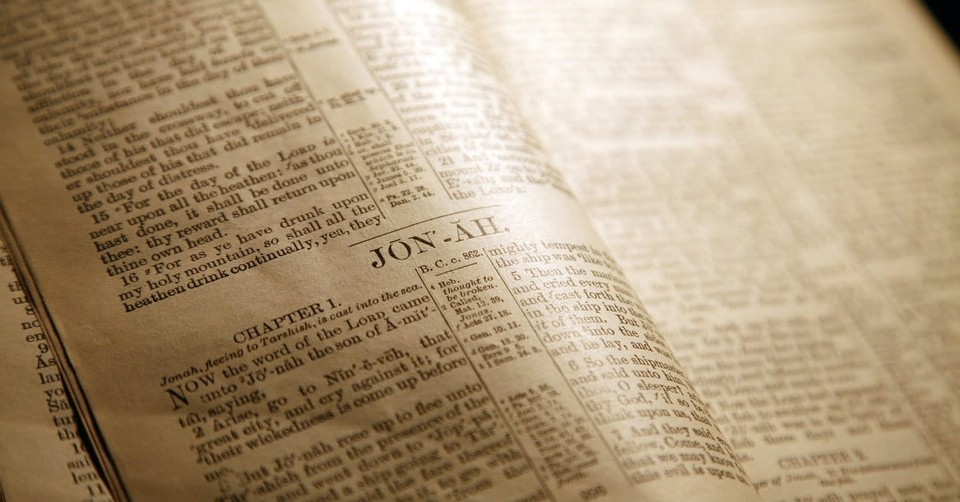Why Modern-Day Christians Need the Minor Prophets

For some reason, many Christians today are scared of the Minor Prophets. Maybe it’s the complex prophecies, or the chaotic violence, or perhaps the puzzling historical context. Whatever it is, we have a cultural tendency to camp in the cozy familiarity of the Psalms and the Gospels—and leave the doom-and-gloom prophets alone.
Yet this is a tragic mistake for any Christian. These books—just like Leviticus, Revelation, and yes, Psalms—are God-breathed words (2 Timothy 3:16). This alone makes them worth studying. But there’s more. Unlike contemporary caricatures and stereotypes, these books practically explode with relevance for Christians today. While we do have to understand them as first and foremost written for God’s people in ancient Israel, these books still bubble over with truth, correction, and meaning for God’s people in the twenty-first century.
How? Here are just four ways.
The Minor Prophets Teach Us About Justice
In the book of Amos, the Israelites are condemned for oppressing the weak through the merciless practice of debtor’s slavery. This was a heinous irony for a people redeemed from the bonds of enslavement themselves. God warns his people of punishment for their sin and demands they turn to justice. In Amos 6, these famous words are declared: “Let justice roll down like waters, and righteousness like an ever-flowing stream.” God is crystal clear in Amos: He hates apathy and pride in the face of suffering and injustice.
The Minor Prophets are filled with redemptive themes. Ultimately, they’re about Jesus.
The Minor Prophets are replete with calls to love our neighbors, care for the poor, protect the outcasts, love the orphans, speak out against injustice, and do what is right. These are lessons we desperately need in this day and age. The Minor Prophets offer us insight into how we should treat people who are different than us (e.g., poorer than us, richer than us, healthier than us, sicker than us, a different color than us) and the paramount importance of justice.
As we wonder how to think about adoption, abortion, the refugee crisis, homelessness, human trafficking, racism, persecution, and oppression, the prophets sing of God’s love for justice—and they counsel us to do the same.
The Minor Prophets Teach Us About Joy
I believe Zephaniah 3 is one of the happiest chapters in the Bible. After two and a half chapters of judgment and punishment, the shackles of sin are suddenly broken and joy breaks out in the prophecy. Zephaniah begins a happy, hopeful description of the restoration of God’s people.
Sing aloud, O daughter of Zion; shout, O Israel! Rejoice and exult with all your heart, O daughter of Jerusalem! The LORD has taken away the judgments against you; he has cleared away your enemies. The King of Israel is in your midst; you shall never again fear evil. (Zephaniah 3:14-15)
The prophets teach us that humanity was made for joy, created with the capacity for all-satisfying happiness, and they teach us where to find that: Rejoice in the Lord. Find delight in true worship. And look forward to the unbreakable, everlasting joy that is coming.
The Minor Prophets Teach Us About God’s Sovereignty
It’s woven like a golden thread throughout the whole Bible, but it blazes fiercely bright in the Minor Prophets—God’s sovereignty. The Lord destroys, and the Lord builds up. The Lord judges, and the Lord shows mercy. The Lord takes, and the Lord gives. The whole world is absolutely in his hands.
It was true in ancient Israel, and it is just as true today. God is sovereign over the polls and politics. He’s sovereign over hurricanes and tornadoes. He’s sovereign over terrorism and war and sickness and death and life and everything. And our responsibility is to trust him. Have faith in him. Believe him. Seek him.
Seek the LORD and live, lest he break out like fire in the house of Joseph, and it devour, with none to quench it for Bethel. (Amos 5:6)
The Minor Prophets Teach Us About Hope
Evil will not win the day. A time is coming where fears, frustrations, trials, shame, and suffering will be washed away forever. A time is coming when sin will be no more. We will live in constant joy, constant worship, and constant peace. And that’s where we need to place our trust. Not in ourselves. Not in our finances. Not in our marriage or our government or our children or our jobs or our vacations or our success—but in God’s glorious restoration.
Who is a God like you, pardoning iniquity and passing over transgression for the remnant of his inheritance? He does not retain his anger forever, because he delights in steadfast love. He will again have compassion on us; he will tread our iniquities underfoot. You will cast all our sins into the depths of the sea. (Micah 7:18-19)
The Final Thing Minor Prophets Teach Us
The Minor Prophets are filled with rich and redemptive themes that should convict, equip, and encourage Christians today. But that is not what they are ultimately about. And that’s not ultimately why you should read them.
Ultimately, they’re about Jesus.
Jesus, the only human who was perfectly just and true, full of compassion and mercy, yet also full of indignation at evil. Jesus, the source of lasting joy, the fount and expression of joy, the one who found peace and happiness in the will of his Father. Jesus, the one who is totally sovereign, who is reigning and ruling for his glory. Jesus, the one who is bringing hope and restoration, the one whose death and resurrection secured life, the one whose
return will mark the coming of his unending kingdom.
Jesus, the reason we need the Minor Prophets today.
This article originally appeared on UnlockingTheBible.org. Used with permisison.

Jaquelle Crowe (@JaquelleCrowe) is a 19-year-old writer from eastern Canada. She’s a graduate of Thomas Edison State University and the editor-in-chief of TheRebelution.com. She is the author of This Changes Everything: How the Gospel Transforms the Teen Years (Crossway, April 2017). You can find more of her writing at jaquelle.ca.
Image courtesy: Thinkstockphotos.com
Publication date: December 12, 2016
Originally published December 12, 2016.




